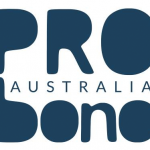Making the Future Safer for Our Children

8 February 2018 at 8:59 am
All organisations and institutions working with children must understand what the Royal Commission means for them to ensure Australian children are never abused again, says Child Abuse Prevention Service (CAPS) ahead of the Safe Children Conference 2018.
Any organisation which has previously or continues to work with children and their families must have a clear and practical understanding of what the findings of the Royal Commission into Institutional Responses to Child Sexual Abuse mean for their organisation moving forward, says Child Abuse Prevention Service (CAPS) director Dr Kieran Le Plastrier.
Dr Le Plastrier’s comments come after the Royal Commission handed its final report to the government in December last year and after media attention which explored systematic institutionalised child abuse, including the ABC’s documentary Undeniable. The documentary detailed the struggle many victims of abuse and their families faced over many years to get the Royal Commission opened. It also explored how organisations and institutions who abused children in their care engaged in systemic coverups further delaying justice to victims.
“The Royal Commission into Institutional Responses to Child Sexual Abuse has been one of the most important commissions Australia has ever seen. The opportunity for victims and their families to tell their story and seek justice and for the commission to really explore what happened in these institutions over the many decades is incredibly important,” Dr Le Plastrier said.
Dr Le Plastrier said that one of the most urgent things anyone working with children and vulnerable families needs to do is to understand how the commission’s finding will impact their work.
“The absolute vital action that any service provider, health clinician, social worker or educator need to take from the commission’s final report is to make sure that they understand how the recommendations will impact the way they operate and work with children and families moving forward so that never again will Australian children have to endure the type of physical, sexual or emotional abuse of the past,” Dr Le Plastrier said.
“As part of this commitment CAPS will be hosting the Making the Future Safer for Our Children conference on 2 March in Sydney where Commissioner Robert Fitzgerald AM will discuss the findings of the Royal Commission and what they mean for our sector, our country and ultimately our children.”
Dr Le Plastrier said that having the opportunity to hear from one of the commissioners themselves about what they believe the impacts will be to industry’s and professionals who work with children and families is incredibly valuable and should not be missed.
“Now is the time for professional associations and individuals to educate themselves on what they need to do to be ready. Change needs to happen and is happening, there is no going back. My worry is that because there are so many recommendations in the final report, people won’t know where to start or how to implement the change required within their organisation or be able to do it in a timely manner,” Dr Le Plastrier said.
The Royal Commission’s recommendations will have far reaching implications across multiple sectors in our society, with direct implications for any agency working with children or indirect contact with children including education, sports, foster care, employment, policing, legal, and insurance. The redress scheme alone directly impacts on any agency funded by state or federal governments.
Dr Le Plastrier pointed to the following recommendations which CAPS views as essential for institutions to comply with:
- Recommendation 6.1 proposes the establishment of a national strategy to prevent child sexual abuse;
- 6.2(b) prevention education delivered through Preschool, school and other community institutional settings…to increase children’s knowledge of child sexual abuse and build practical skills to assist self-protective skills and strategies; along with
- 6.2 (c) prevention education for parents delivered through daycare, preschool, schools sport and recreation settings and other institutional and community settings.
Dr Le Plastrier said that CAPS remain totally committed to working with the Royal Commission, service providers and institutions working with children to ensure that never again will Australian children be at risk of sexual or any other type of abuse in the country’s institutions.

Making the future safer for our children:
2 March 2018 – International Convention Centre Darling Harbour Sydney
Find out more information https://www.safechildren.org.au/








